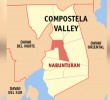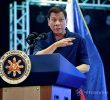STATEMENT IN OBSERVANCE OF THE INTERNATIONAL DAY OF THE WORLD’S INDIGENOUS PEOPLES
AUGUST 9, 2017
The Philippine Task Force for Indigenous Peoples Rights and its partner indigenous communities commemorate the International Day of the World’s Indigenous Peoples. On this occasion, we offer our observations on how the government has addressed the rights of indigenous peoples. Despite the enactment and implementation of the Indigenous Peoples’ Rights Act (IPRA) 20 years ago and the adoption of the United Nations Declaration on the Rights of Indigenous Peoples (UNDRIP) 10 years ago, we find no significant changes to the situation and enjoyment of rights of indigenous peoples in the Philippines.
Many indigenous peoples and communities in the country are still denied complete control over their ancestral land and territories. At present, large-scale mining, dam projects and the continuous expansion of plantations for fruits, oil palm, rubber and other commercial and export crops threaten to overrun and destroy ancestral lands. Indigenous communities face threats of displacement and loss of livelihoods as projects such as the Chico River irrigation project and the Kaliwa Dam are now designated as priority projects by the National Economic and Development Authority (NEDA) and the Duterte administration.
Many efforts of indigenous peoples to assert and exercise their rights to land and self-determination are being attacked by the government and its security forces. Communities and indigenous peoples’’ organizations opposing large scale mining projects, dams and plantations are repressed and attacked with violence such as killings, harassment and trumped-up charges. Indigenous leaders and their organizations suffer political vilification and red-tagging as they are labeled as communists and terrorists.
In President Duterte’s State of the Nation Address (SONA), nothing was said of government efforts to improve the lives and situation of indigenous peoples. Rather, we heard threats to bomb Lumad schools due to supposed links of Lumad and indigenous peoples to communists in the country. This merely shows the government’s continuous neglect of indigenous peoples’’rights and welfare and the mentality that a learned and articulate indigenous leader (whether old, woman, or youth) is a communist or schooled by communists.
These statements from the government jeopardize our work in indigenous communities. Our network members and partners are providing much needed services to indigenous peoples, including education on their rights, literacy and numeracy, transmission of indigenous knowledge and practices to the youth, health services and even livelihood support services such as community-based energy systems and other appropriate technology to support food production. It is actually the government’s duty to extend these services to indigenous peoples as citizens of the country. Yet, the service provided by government, if any, are most often lacking and inappropriate to the needs, situation, culture and aspirations of indigenous peoples.
Human rights violations against indigenous peoples especially among the Lumad in Mindanao continue under the Duterte administration. Cases of extra-judicial killings of indigenous peoples during previous administrations remain unresolved. The resumption of all-out war against the New People’s Army and the declaration of Martial Law in Mindanao have meant bombings, armed conflicts and terror in indigenous communities. Because of these, refugees from Lianga, Surigao who returned home after more than a year spent in evacuation centers are now evacuating once again. The early gains made after the resumption of peace talks between the Government of the Republic of the Philippines and the National Democratic Front of the Philippines are wasted as the peace talks have ceased anew.
These are just some of the age-old problems and “new” threats that the indigenous peoples are now facing in the country.
As we commemorate the International Day of the World’s Indigenous Peoples in the Philippines, the Philippine Task Force for Indigenous Peoples Rights calls for the respect of the rights of indigenous peoples to their ancestral lands and basic social services. Recognition of indigenous peoples’’rights to land and resources will ensure that other rights such as the right to self-determination and practice of traditional knowledge and socio-political institutions and structures may be enjoyed as well.
We call on the President and the government to be sincere and responsive to indigenous peoples’ demands, towards realizing genuine development for indigenous communities and the Filipino nation as a whole. We will continue to work together with our partner organizations and communities until indigenous peoples achieve genuine self-determined development.










